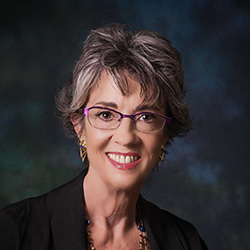Are we taking the anti-ageism movement too far? In the process, do we run the risk of devaluing aging? This blog was originally published by Stria.
An unscientific poll of my friends and acquaintances suggests that every person over age 65 has experienced at least one “ah-ha” moment when they felt themselves being dragged, kicking and screaming, over the “age divide.”
While standing on one side of that divide, they felt just like everybody else.
But, once they arrived on the other side, they suddenly felt defined by their age and pigeonholed by the unflattering images that people associate with the outdated “senior citizen” moniker.
My ah-ha moment occurred in my eye doctor’s office just a few months after I turned 65. During a routine exam, the doctor observed a cataract that was just beginning to form in one eye. No worries, he assured me. “That’s normal for people your age.”
I was taken aback. How could this doctor, whom I’d known for years, put me into the dreaded “elderly” category with such ease? I was still the same person who he’d seen a year ago. Why was he suddenly focusing on my age, and not on me and my eyes?
I wanted to make a scene. Now, I’m glad I didn’t.
Why? Because I’ve grown up and moved on.
AN AMERICA FREED FROM AGEISM
Don’t get me wrong. I’m the first one to object to the stereotypes that so many Americans harbor about anyone who is different, including people with disabilities, people of color, and people over a certain age.
As senior vice president of research at LeadingAge, I’m particularly incensed by ageist attitudes that paint all older people as frail, sick and helpless. These stereotypes have led to a dangerous assumption, communicated in both overt and subtle ways, that older people are not valuable members of society, that they are “takers,” rather than “contributors.”
We all know that’s hogwash. And, thankfully, we’re getting that message across through anti-ageism initiatives, including LeadingAge’s vision of “an America freed from ageism.”
I applaud vigorously when stereotypes like this are exposed and eradicated through education and advocacy.
But, I still have lingering doubts.
Are we taking the anti-ageism movement too far?
In the process, are we running the risk of devaluing aging altogether?
FIGHTING AGEISM WITHOUT TURNING OUR BACKS ON AGING
There are two facts about the human condition that we simply cannot ignore:
- As much as we’d like to deny it, we will all be old one day. I was 26 when I started working on aging issues—I am now 68 and see those issues from a very different vantage point.
- As much as we hate to admit it, getting older does change us in many important ways.
Some changes are good, of course. Those of us over age 65 have every reason to celebrate the fact that we have lived long lives filled with experiences that have helped us grow in wisdom, allowed us to accumulate and share valuable knowledge, and still give us myriad opportunities to make valuable contributions to our communities.
But let’s face it. Some of the changes that come with age aren’t that great.
Our bodies and our functional abilities do change after a certain age. That means we may require far different interventions to maintain our biological, psychological, and social well-being at age 80 than we did at age 21. And it means, as I learned from my eye doctor, that our age may actually help inform diagnostic and treatment decisions.
Acknowledging these facts doesn’t make us ageist, it makes us pragmatic. Ignoring or denying these facts just makes us foolish.
WHY WE NEED GERONTOLOGISTS
Baby boomers like me are getting old. Granted, it’s something we thought would never happen, and we’re not going gently into that good night.
On one level, that’s a good thing. We are different from our parents and grandparents, and we’re not likely to age in the same way they did.
We actually have the potential to do the “aging thing” a lot better than our parents did. But only if we stop pretending that there are no real distinctions between us and other age groups. Gerontologists get this. They’re trained to recognize and take a multidisciplinary approach to addressing the wide variety of opportunities and challenges associated with aging. We didn’t need their help 100 years ago when most Americans died at age 45. But we need them now.
It would be a shame to ignore their expertise because we’re unwilling to claim the unique identity that comes with living a long life, or to support needed investments—in health and social services, housing and community design, and public policies—that can help all Americans enjoy our longevity to the fullest extent possible.
We can own our age-identity while also fighting against ageist thinking. It’s a delicate balancing act, I admit. But what choice do we have?
We owe it to ourselves and to future generations to learn how to live with the tension of valuing who we really are, rejecting false assumptions that don’t reflect the reality of our lives, and having the wisdom to know the difference.

Robyn I. Stone, DrPH, is senior vice president of research at LeadingAge, and co-director of the LeadingAge LTSS Center @UMass Boston. Her widely published work addresses long-term care policy and quality, chronic care for people with disabilities, the aging services workforce, affordable senior housing, and family caregiving.
